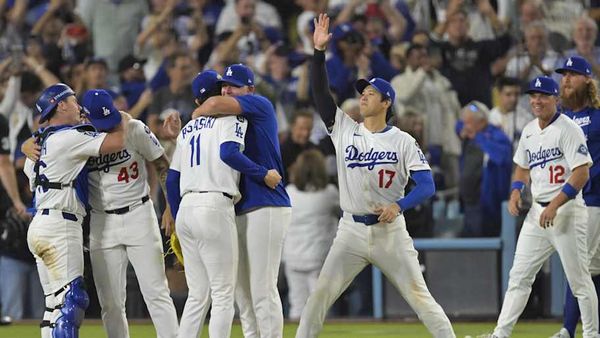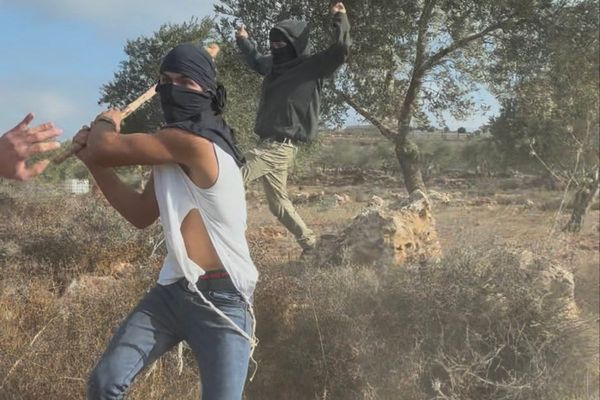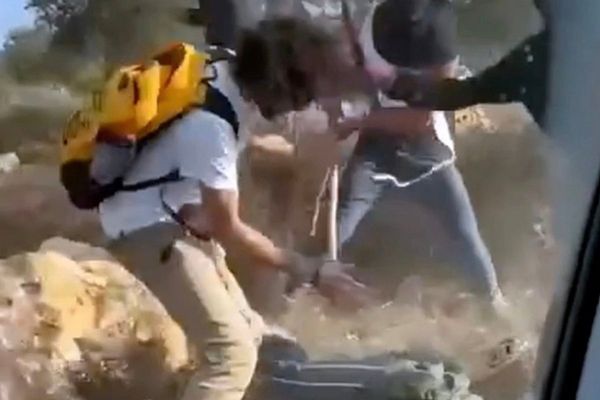
I went on my first dive in Mozambique and as I was descending, I could hear this weird chirruping noise. As we got closer to the reef, it got louder and louder. It was so weird and different from any other sound I’ve heard. Other scuba divers call it the “crackling” of the coral reef. That’s what I was hearing: the actual coral. I could hear the whole reef, being alive – and it sounded absolutely amazing, like its own kind of orchestra. A sea orchestra.
I am Padi’s first South African blind scuba diver. I have a condition called optic atrophy, caused by a brain tumour that pressed on my optic nerves when I was 11. After it was removed, my central vision turned completely black, but with pinpricks of light that almost look like stars.
On the outer edges of my peripheral vision, I have extremely blurry sight. I can make a contrast between light and dark, so I can distinguish shapes, but I have colour blindness and depth perception issues so I can’t really make out what is in front of me.
I started diving five months ago, when I was 20. I had always thought of it as a “seeing” sport so I didn’t know what to expect.
As well as the little crustacea that live in the coral, I listen out for parrot fish crunching on the harder coral and the popping sounds that some of the fish make. I feel the water move around me from the fins of little fish swimming past.
Since I lost my vision, I’ve fallen down staircases and run into lamp-posts, and hurt myself so badly I needed stitches. I’ve had to learn to navigate my world using my other senses – touch and hearing. That’s how I figure out where I am – that’s how I manage: I have to use all my senses at once.
But underwater, I don’t have to use my hearing or touch to orient myself. I feel weightless. I don’t have to worry about listening for people’s footsteps coming towards me. I don’t have to memorise where obstacles are. I can just breathe and listen to the crackle of the coral.
I find it so calming, so relaxing – because there’s no purpose to my listening. And rather than focusing on what I cannot see, I am focusing on what I can still experience.
I’ve been on about 20 dives now. My diving buddy is always with me, to take me where I need to go and make sure I don’t crash into anything.
My left hand is always interlinked with theirs and they use tactile hand signals to communicate with me, because if you try to talk wearing scuba diving equipment, all you can make is mumbly, bubbly sounds.
They’ll squeeze my fingers to ask if I’m OK, and I’ll reply with the normal dive sign for OK. But at times, we’ve had to be very creative.
Once, my buddy saw a shark swim underneath us and started humming the theme tune to Jaws to alert me to it. I couldn’t stop laughing.
Scuba diving has helped me gain a lot more independence and confidence. Soon after I lost my vision, I was in a crowded field full of hundreds of people and my friends disappeared and left me. I was alone. I didn’t know where I was. It got to me. I found it hard to trust people afterwards.
I’ve gained a lot of that trust back now. It feels empowering, putting my equipment on by myself and experiencing the thrill of diving into the ocean, not knowing what I’m going to encounter.
As told to Donna Ferguson
Jessica Pita is a disability activist and Padi AmbassaDiver







